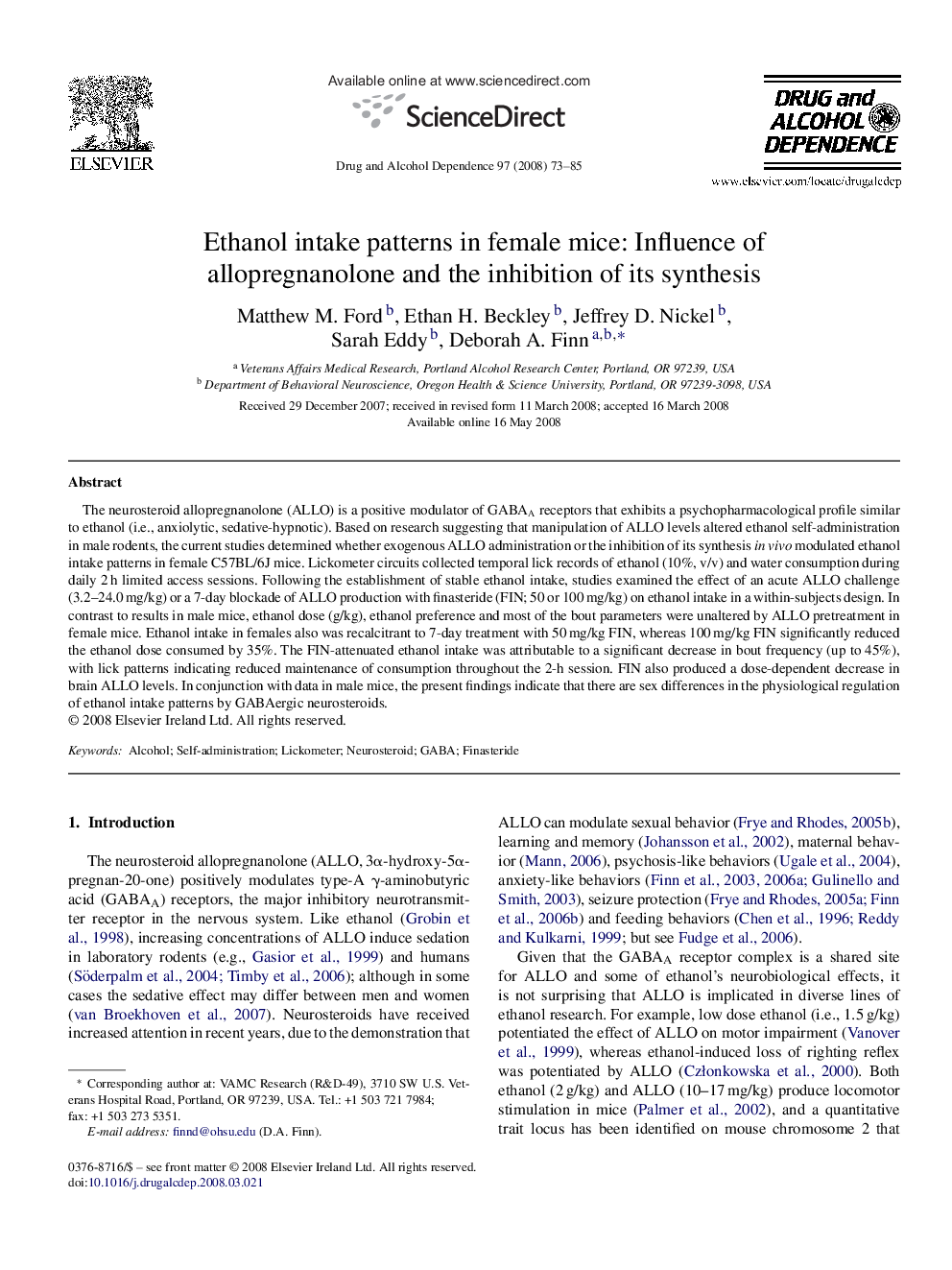| Article ID | Journal | Published Year | Pages | File Type |
|---|---|---|---|---|
| 1071439 | Drug and Alcohol Dependence | 2008 | 13 Pages |
Abstract
The neurosteroid allopregnanolone (ALLO) is a positive modulator of GABAA receptors that exhibits a psychopharmacological profile similar to ethanol (i.e., anxiolytic, sedative-hypnotic). Based on research suggesting that manipulation of ALLO levels altered ethanol self-administration in male rodents, the current studies determined whether exogenous ALLO administration or the inhibition of its synthesis in vivo modulated ethanol intake patterns in female C57BL/6J mice. Lickometer circuits collected temporal lick records of ethanol (10%, v/v) and water consumption during daily 2Â h limited access sessions. Following the establishment of stable ethanol intake, studies examined the effect of an acute ALLO challenge (3.2-24.0Â mg/kg) or a 7-day blockade of ALLO production with finasteride (FIN; 50 or 100Â mg/kg) on ethanol intake in a within-subjects design. In contrast to results in male mice, ethanol dose (g/kg), ethanol preference and most of the bout parameters were unaltered by ALLO pretreatment in female mice. Ethanol intake in females also was recalcitrant to 7-day treatment with 50Â mg/kg FIN, whereas 100Â mg/kg FIN significantly reduced the ethanol dose consumed by 35%. The FIN-attenuated ethanol intake was attributable to a significant decrease in bout frequency (up to 45%), with lick patterns indicating reduced maintenance of consumption throughout the 2-h session. FIN also produced a dose-dependent decrease in brain ALLO levels. In conjunction with data in male mice, the present findings indicate that there are sex differences in the physiological regulation of ethanol intake patterns by GABAergic neurosteroids.
Related Topics
Life Sciences
Neuroscience
Behavioral Neuroscience
Authors
Matthew M. Ford, Ethan H. Beckley, Jeffrey D. Nickel, Sarah Eddy, Deborah A. Finn,
